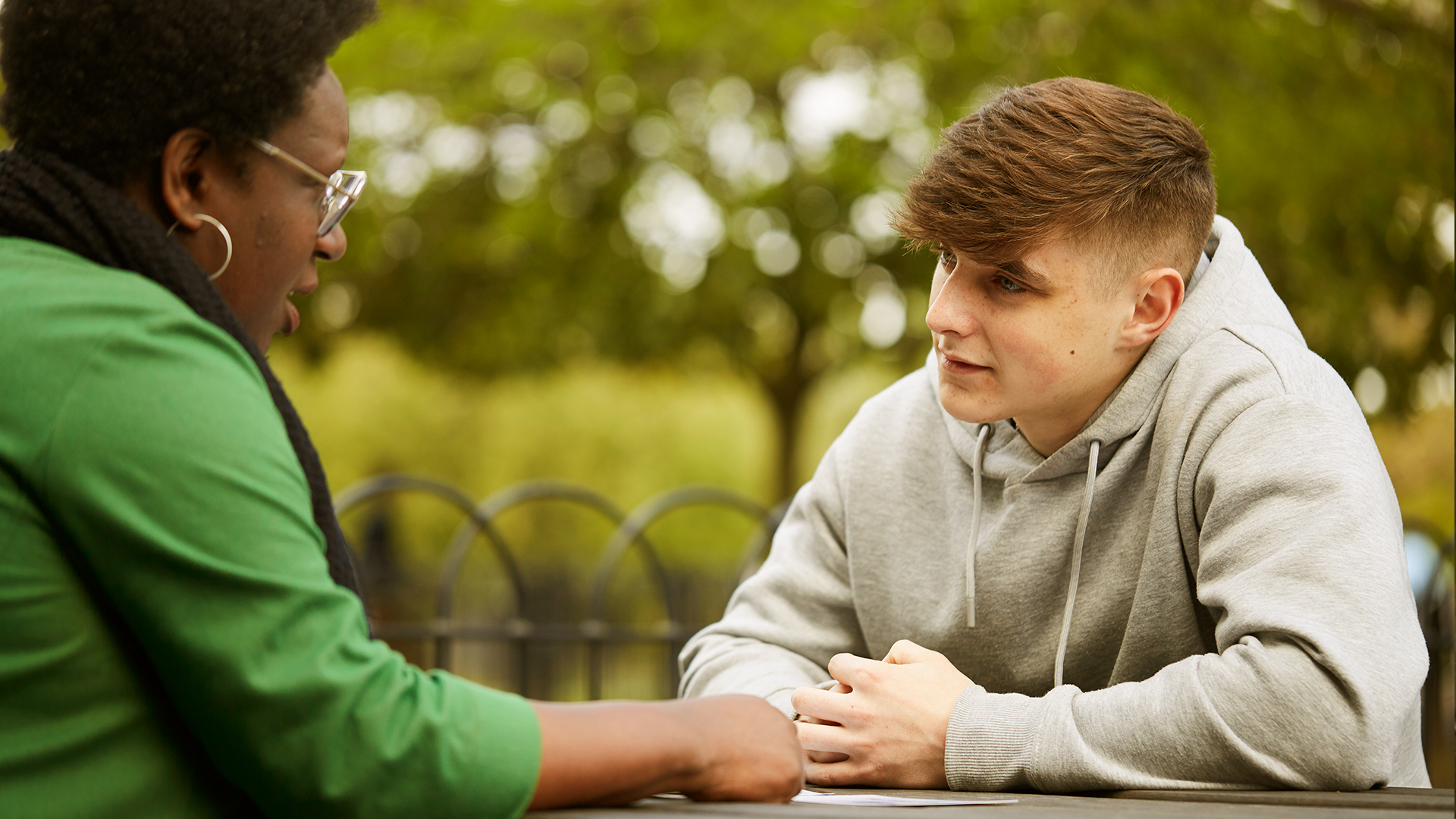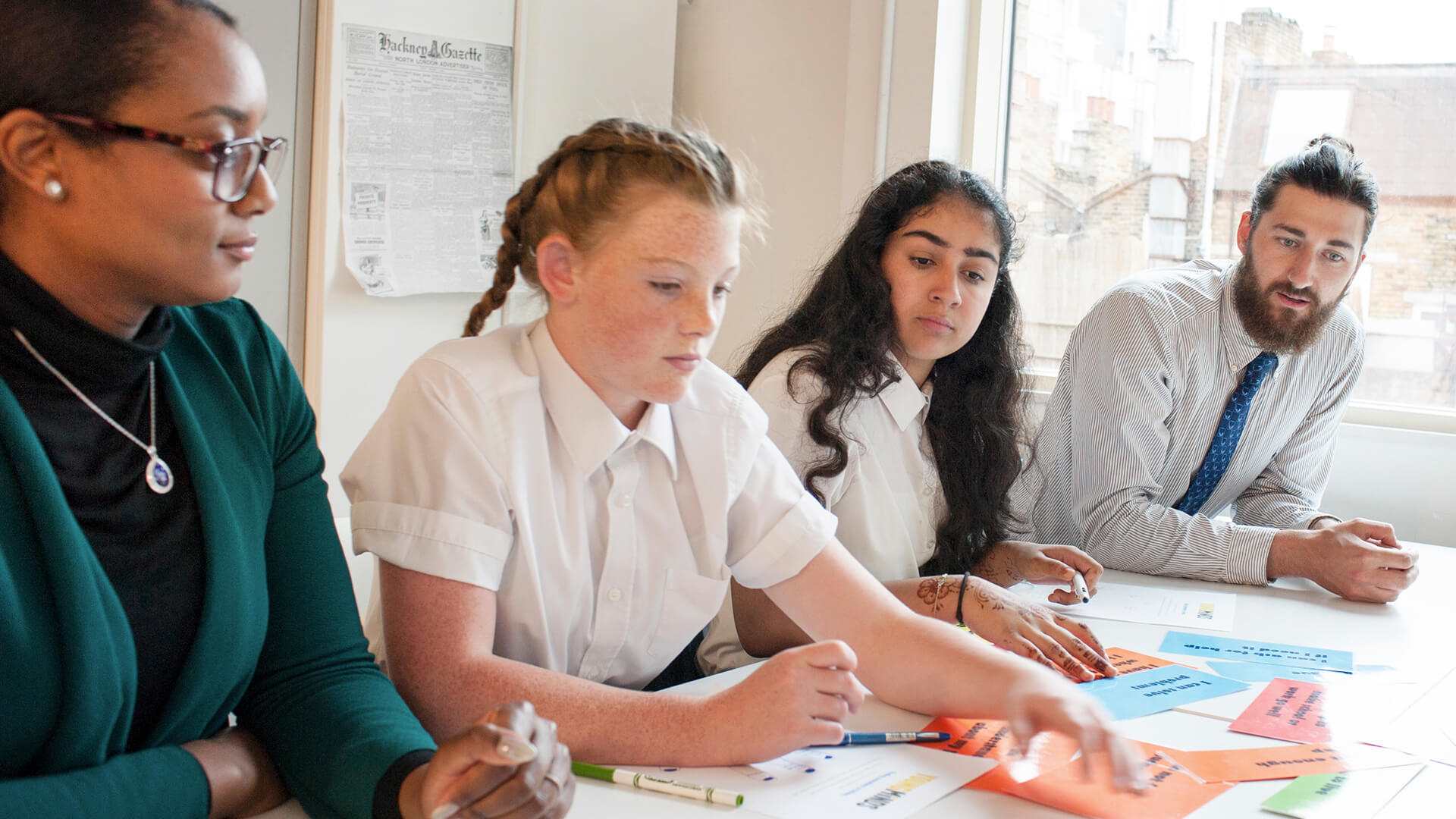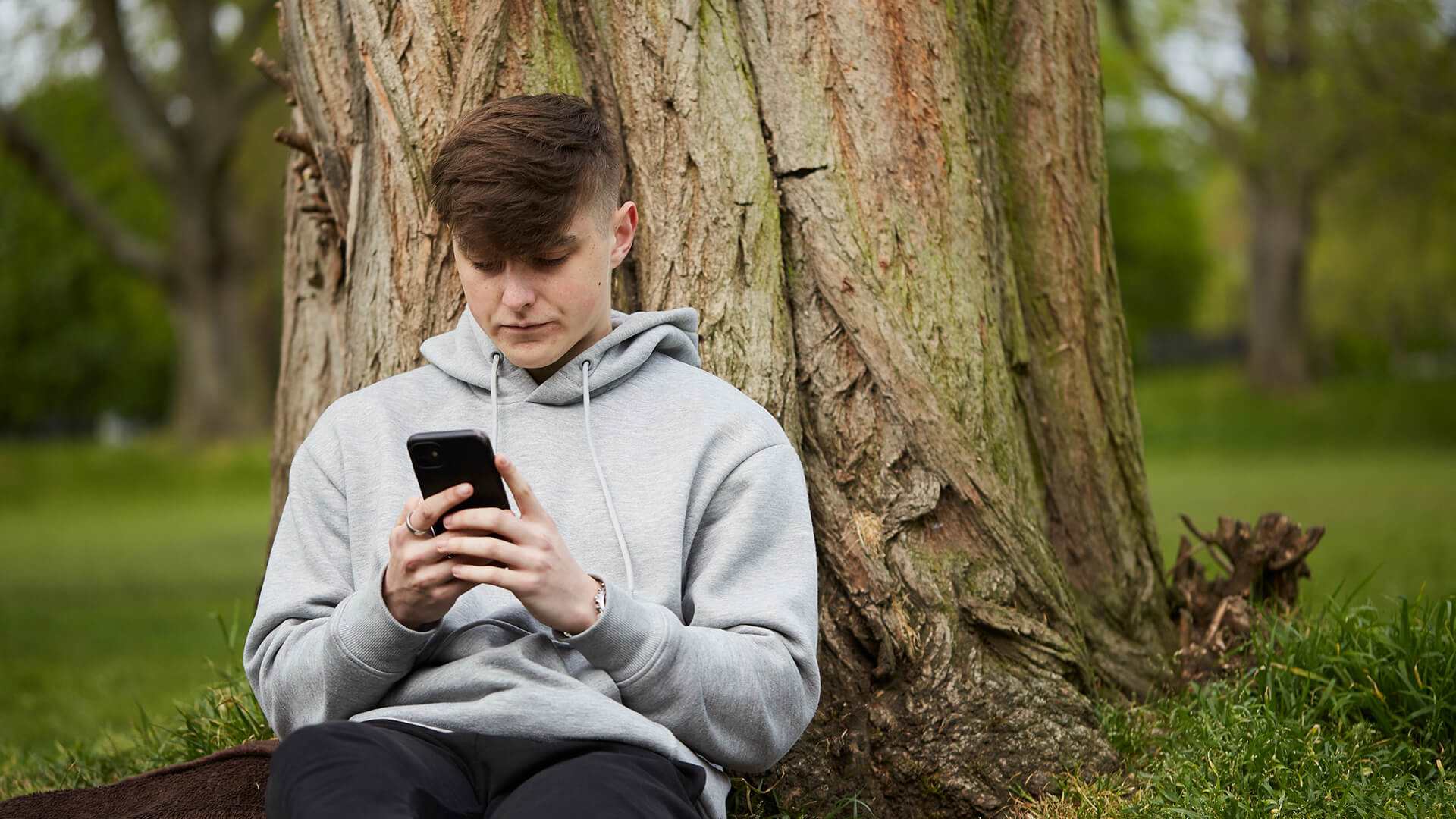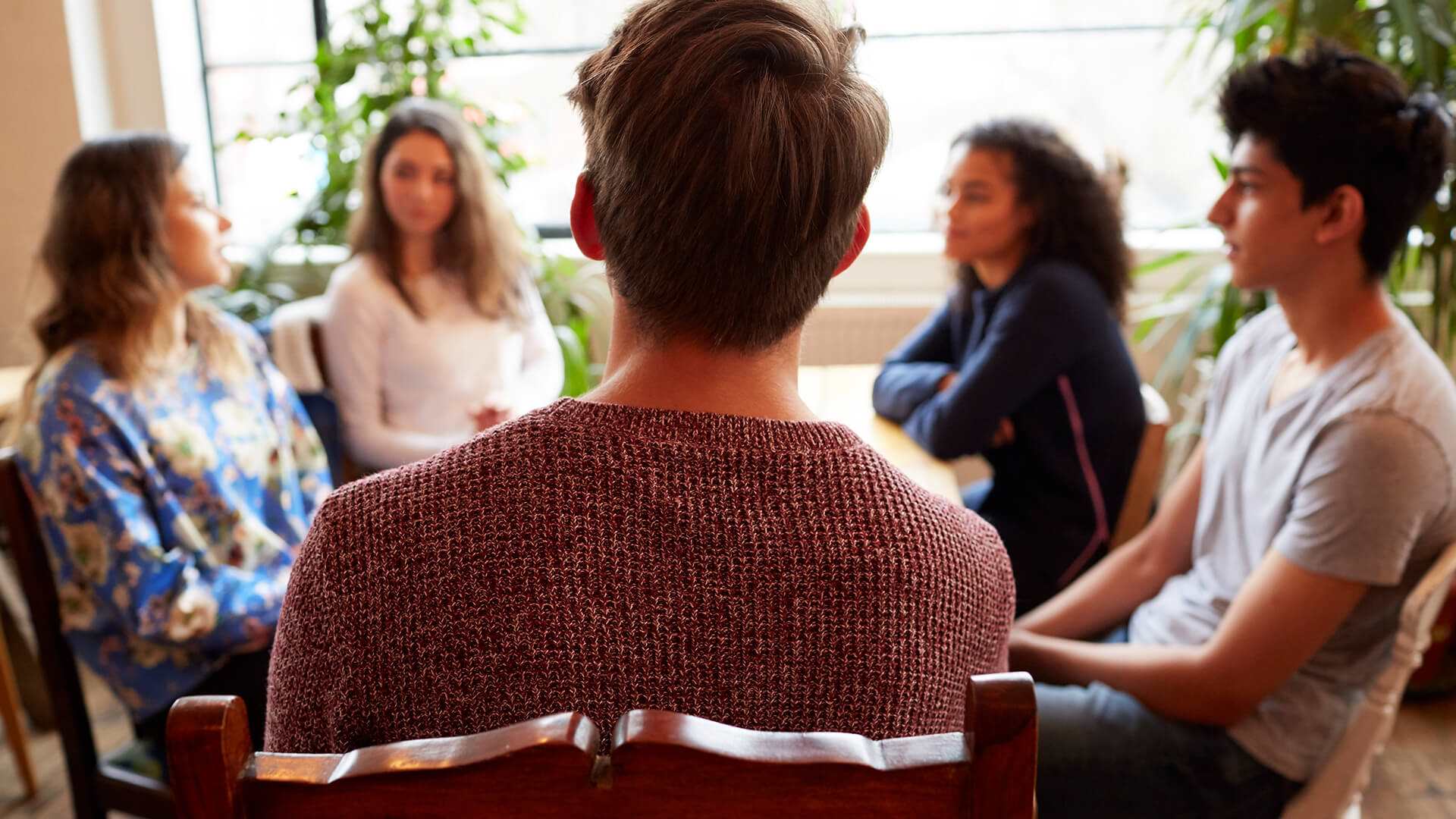69% of young people told us they always or often feel worried about getting good enough grades at school.

Our research makes clear that there are a number of key building blocks to life which lead to positive mental health outcomes. These blocks include factors such as income, education, housing, employment, public services and support networks.
Here we explore how these different structures in society can impact young people’s mental wellbeing.

The education system has a significant impact on young people's mental health, with more than half feeling negatively affected by their place of education. This stems from factors such as academic pressure, bullying and behaviour management.
Young people feel that the education system should be helping them prepare for the future, but currently, it isn't fulfilling that need. They express hopes for a relevant, up-to-date, and inclusive system with real-world experiences that reflect the diversity of today’s population. Suggestions to make schools more inclusive include things like decolonising the curriculum and including LGBTQIA+ content in sex and relationship education.
The education system can also discriminate against minoritised young people. Black young men told us they were treated unfairly by their teachers and stereotyped due to their race. The racial stereotyping they experience from teachers negatively impacted them and affected how they view the education system. They feel their wellbeing would be positively impacted if teachers were supportive, asked the right questions, and listened to Black students. Young Black women reported experiencing microaggressions like hair-grabbing and a lack of understanding about their cultures. This is not acceptable.
With those attending school more likely to seek support from their place of education than anywhere else, it's essential that young people's concerns are listened to, and that schools, colleges and universities become inclusive places that prioritise wellbeing and provide young people with a safe space to go when they're struggling with their mental health.

Young people are under a lot of pressure to be successful, with worries about finding a job and earning enough money being common sources of stress.
Money plays a big factor in poor mental health. In 2022, our research found that worries about money were the biggest negative influence on young people’s mental health.
Experiences of poverty, debt, and issues regarding employment can negatively impact mental health, with those in the North of England and with certain protected characteristics being more likely to struggle financially.
It needs to be easier to live. It is not possible to maintain a healthy lifestyle, connect with friends and family, engage in fulfilling activities and run a household while working enough hours to survive. I work two jobs and may need to pick up a third just to keep on top of household costs, and that leaves very little time for anything else.
We found that a number of other social systems also worry young people, in particular the health and social care systems and police and law enforcement. We also found that these institutions are disproportionately affecting certain minoritised groups.
Of all the young people we surveyed, 9% disclosed some form of worry about being in care and 24% worried about being a young carer.
For those worrying about being in care, pressure and worry stems from themselves, their family and carers, and the social care system itself.
Young carers feel most pressured by their family and carers, followed by themselves and the healthcare system.
We also found the health care system is disproportionately affecting Minoritised groups, including half of those who have both a physical and a mental health condition.
We found police and law enforcement has a disproportionate affect on Minoritised groups.
Those negatively impacted by police and law enforcement included half of young Black people and 59% of Non-binary young people.
Young people see the Government and the media as the two most harmful institutions to their mental health. Both uphold systemic inequality and drive the pressure felt by young people.
The Government does this through education, the economic system, and public services, while the media shapes social attitudes and the news agenda which then creates pressure and worry for young people.

Young people have overwhelmingly negative experiences with the media, with 70% reporting a negative impact on their mental health.
The media influences how young people feel about the world and themselves, with many feeling less safe and more anxious.
Young Muslims, refugees, and physically disabled young people feel the media portrays them badly, leading to negative public perceptions about them.
Social media also has a significant impact on young people's mental health, with encountering harmful content online now being accepted as normal and 92% of young people worrying about feeling they have to look or act a certain way as a result of social media influence.

The Government has the power to improve young people's mental health by implementing positive changes to education, healthcare, social care, law enforcement, and the economic system. However, young people feel let down and forgotten by them.
We found that 69% of young people feel negatively impacted by the Government. Only 6% trust the Government to advocate for or champion young people's mental health, and only 12% think the Government take mental health seriously.
What's more, Non-binary, LGBTQIA+ young people, full-time parents, and those with health conditions or illnesses are more likely to be negatively impacted.
Young people want politicians who understand their experiences and to be actively involved in policy creation. The Government needs to rebuild trust by ensuring young people's voices are heard and they are part of the decision-making process.
The Government must start to serve the people, rather than capital. Meaningfully tackle poverty in all forms, and work to make society better for all (work-life balance, redistribution of wealth, elimination of discrimination, wholly democratic processes and institutions).
If you're a young person affected by any of the issues mentioned here, know that you are not alone. For help and support, take a look at our information and advice guides.